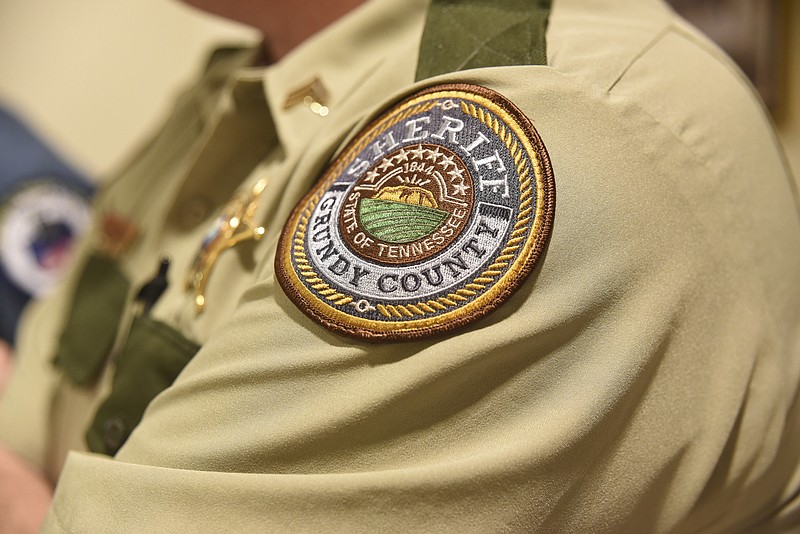Being a police officer isn't the most glamorous job in the world, but a recent study suggests it's worse to be one in some states than others, and Tennessee is near the bottom of the barrel.
The Wallethub study ranked Tennessee as the 46th worst state to be a police officer, thanks to a relatively high crime rate and low pay, among other conditions.
Researchers considered metrics in three main categories: opportunity, job hazards and quality of life. Some factors, such as the number of police deaths per 1,000 officers, were weighted more heavily than others, but even small factors such as housing affordability were considered.
The report's authors wrote law enforcement can be a thankless profession and for the more than 900,000 American men and women who wear the uniform, it can also be exceedingly dangerous.
"In the past 10 years, for instance, more than 1,500 police officers, including 143 in 2016 alone, died in the line of duty. Tens of thousands more were assaulted and injured," the report read.
Tennessee scored poorly relative to most other states on several metrics, the most significant being ranked 47th for both its violent crime rate and police deaths per 1,000 officers. It was also set apart by its comparatively low median income.
The study noted officers nationwide receive a $61,600 mean annual wage.
On the other end of the spectrum, North Dakota, Connecticut and New York snagged the top three spots, respectively.
One of the issues for modern officers most frequently cited by a panel of academic experts quoted in the study is the erosion of public trust in law enforcement over the last several years.
"The single largest issue facing police officers today is the incredible amount of tension between police, as an institution, and the communities they serve and the resultant lack of legitimacy," wrote Dale Willits, assistant professor in the Department of Criminal Justice and Criminology at Washington State University.
"These tensions are particularly noteworthy for officers serving in disadvantaged communities of color. As a result, police in these agencies are likely to feel disrespected and be less capable of ensuring public safety and investigating crimes."
Others noted that advances in technology have affected law enforcement as much or more than any other profession. Andrew Denney, a professor at the University of West Florida, said technology can help officers, but it can also put them under a spotlight.
"At no other time in human history can we say that we have video and audio recordings of a police officer's entire shift. As such, it is revealing training issues, poor judgment, and human error unlike ever before," he wrote.
"Professional athletes are likely the only other occupation that can share the experience of having their every move recorded while on the job, and look how we dissect their performance on the radio, television and the internet."
Whatever the results of the study may be, Chattanooga Police Department Deputy Chief David Roddy said local officers enjoy good relationships with community members and actually have seen increased cooperation from citizens during calls.
"Officers report community members are approaching them and conversing with them more openly and often," he wrote in an email. "Witnesses are more frequently engaging with investigators, community members are calling when they see something suspicious, and as a result we are seeing a decrease in property and violent crime overall."
Roddy said Chattanooga police and members of the public support one another and the "overwhelming acts of kindness" officers experience daily are part of what makes the job rewarding.
"That support is earned every day through the heroic actions and selfless service of your officers and must receive intentional focus to maintain it," he wrote.
East Ridge Assistant Chief Stan Allen declined to comment on the challenges faced by the officers he works with, saying he couldn't speak for them, but he did say there is no shortage of men and women willing to join the department.
"We usually have several applicants when we have a position available, so it seems to be appealing," he said.
Contact staff writer Emmett Gienapp at egienapp@timesfreepress.com or 423-757-6731. Follow him on Twitter @emmettgienapp.
Violent Crime Rates
Lowest violent crime rates1. Vermont2. Maine3. Virginia4. New Hampshire5. IdahoHighest violent crime rates47. Tennessee48. New Mexico49. Nevada50. Alaska51. District of Columbia
Officers per capita
Most officers per capita1. District of Columbia2. New Mexico3. Texas4. Arizona5. New YorkFewest officers per capita47. Kentucky48. Iowa49. Alaska50. Utah51. Oregon
Tennessee by the numbers
36th - Number of officers per capita36th - Median income for officers47th - Violent crime rate24th - Percentage of homicide cases solved29th - Police protection expenses per capita39th - Property crime rate47th - Police deaths per 1,000 officers
